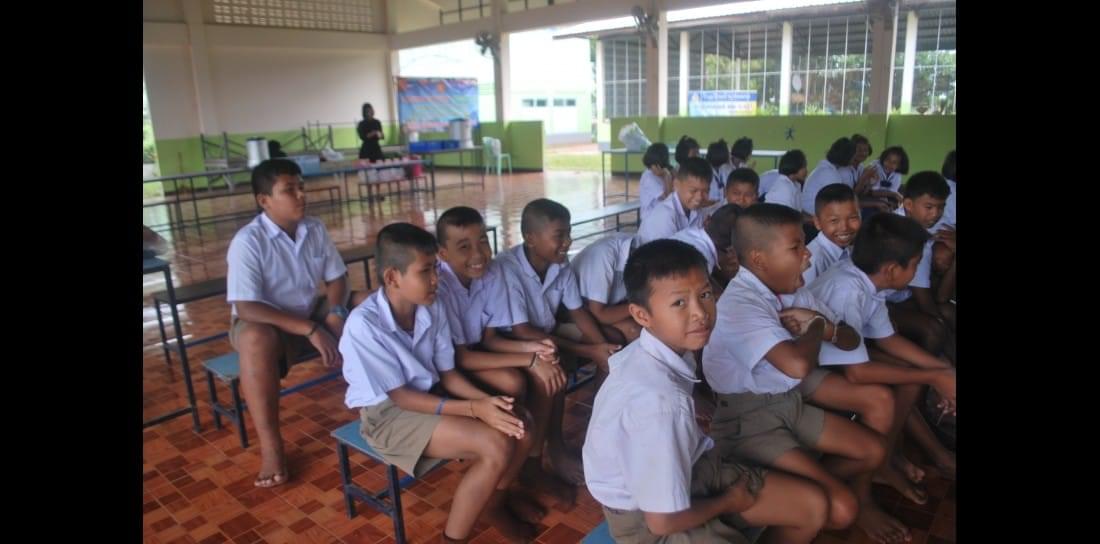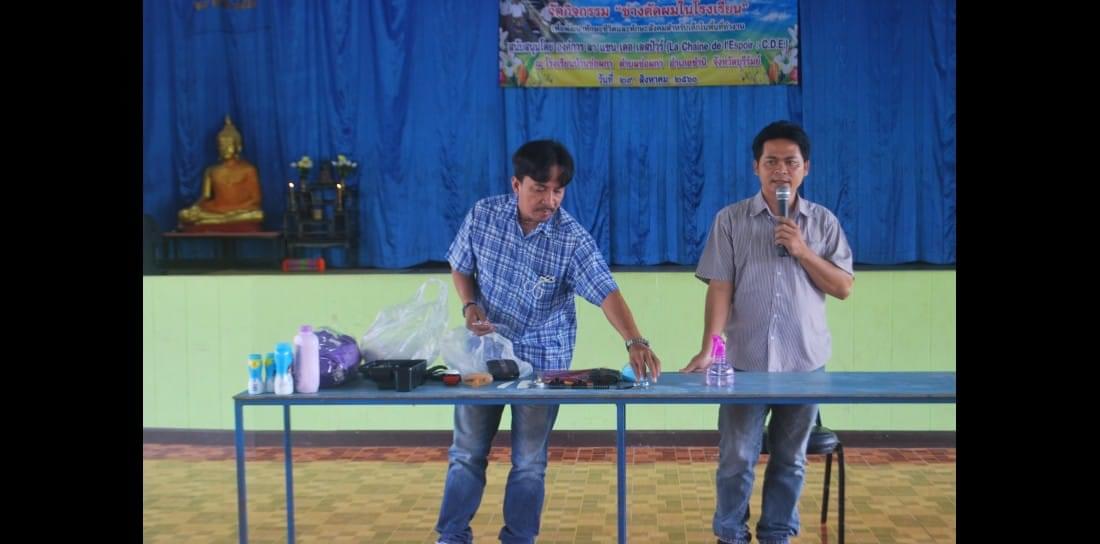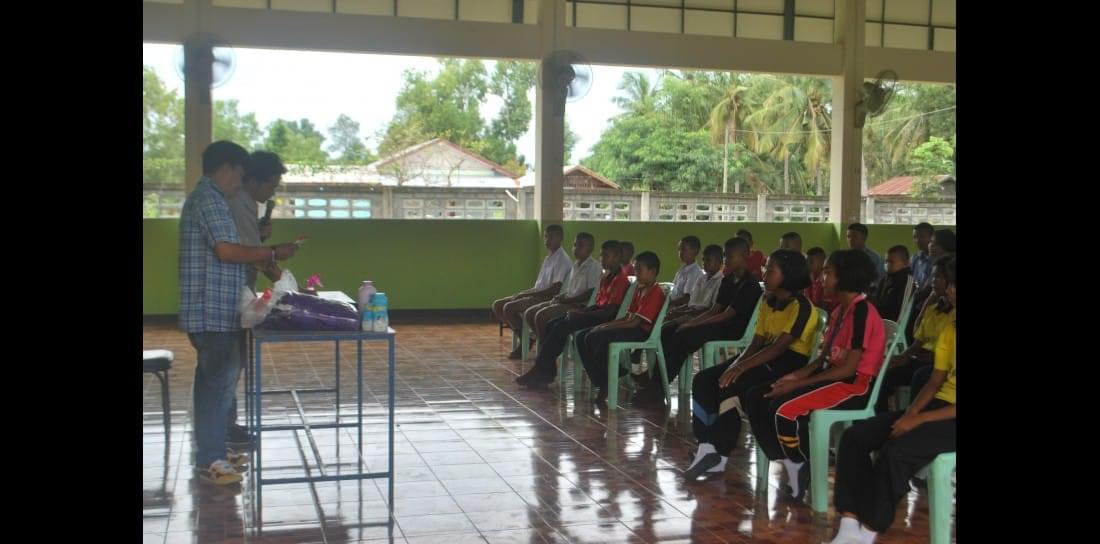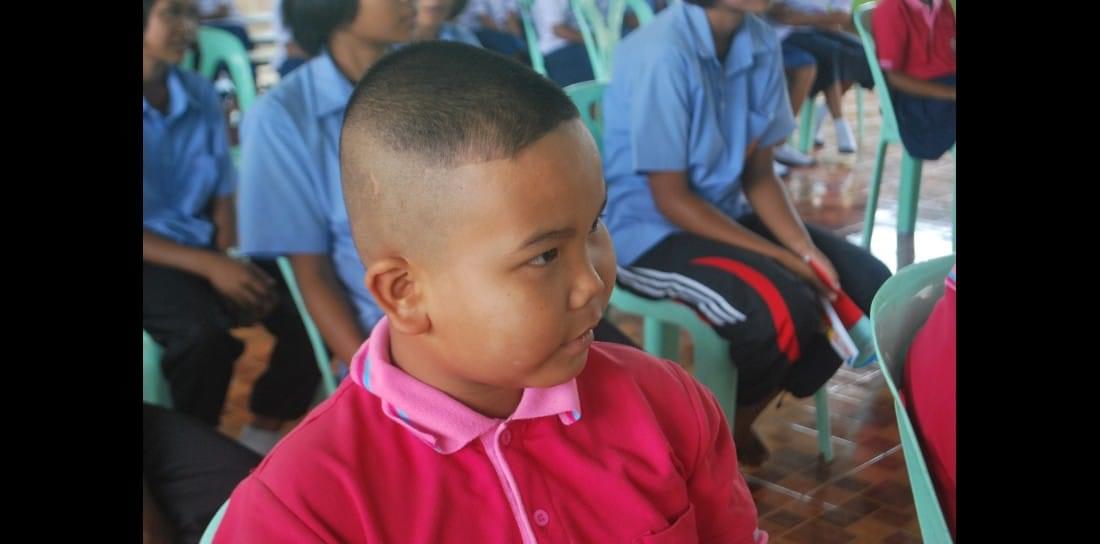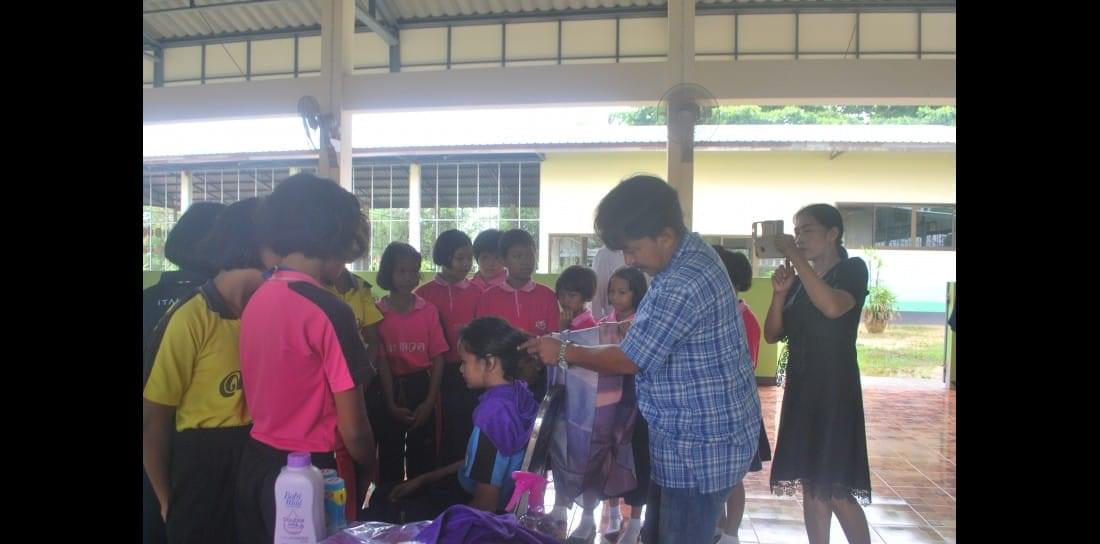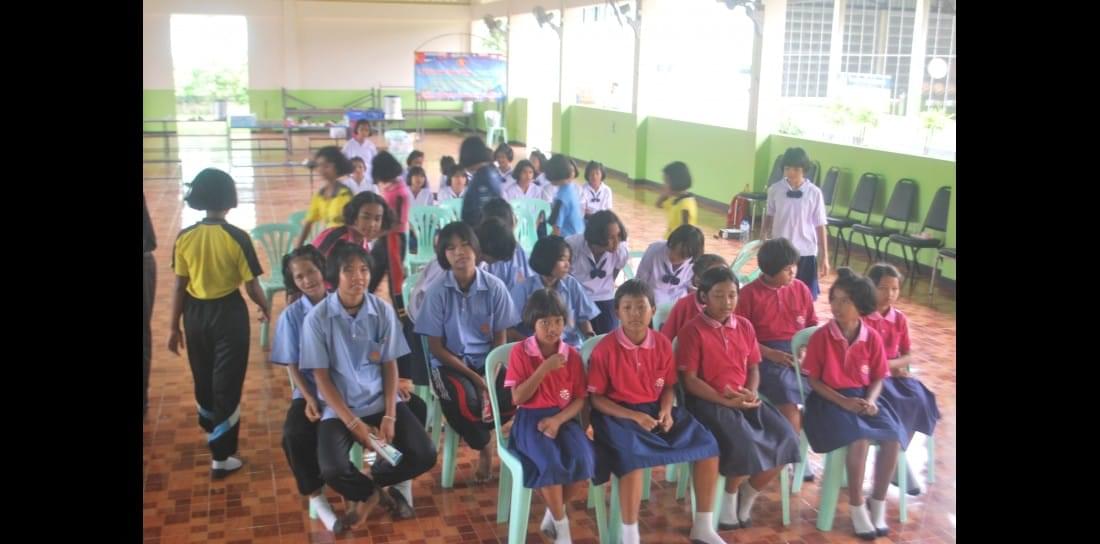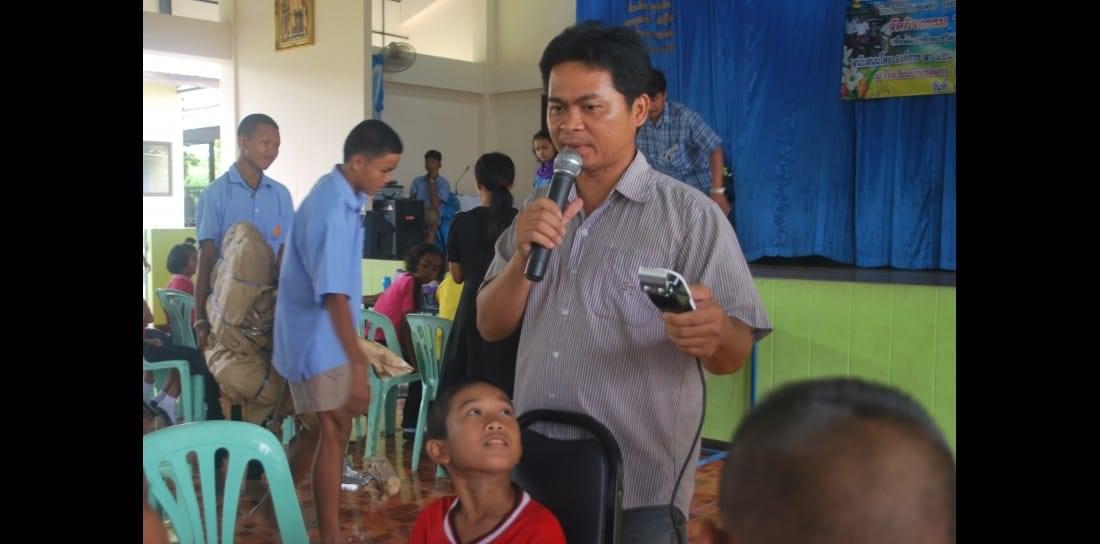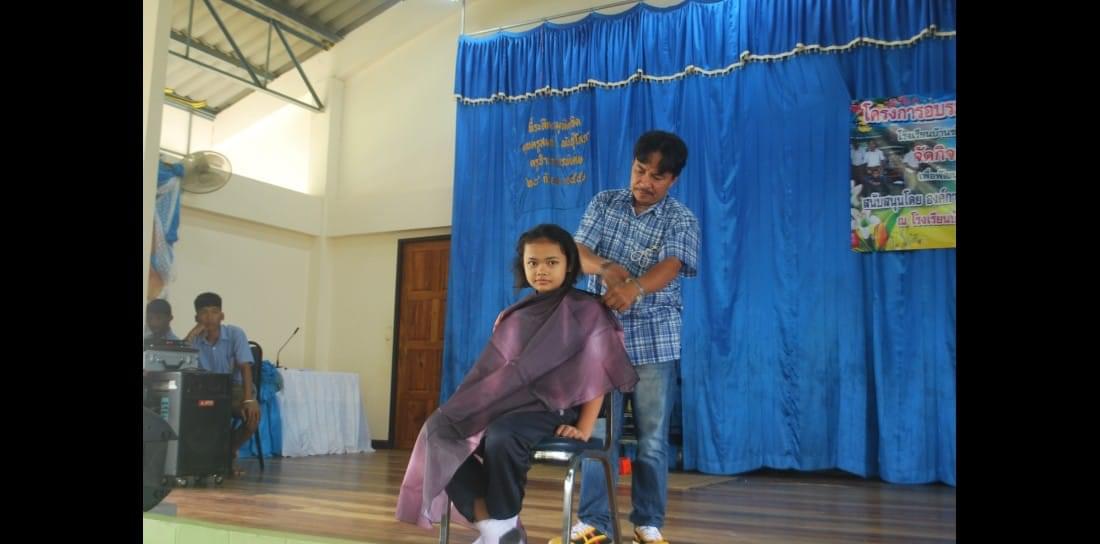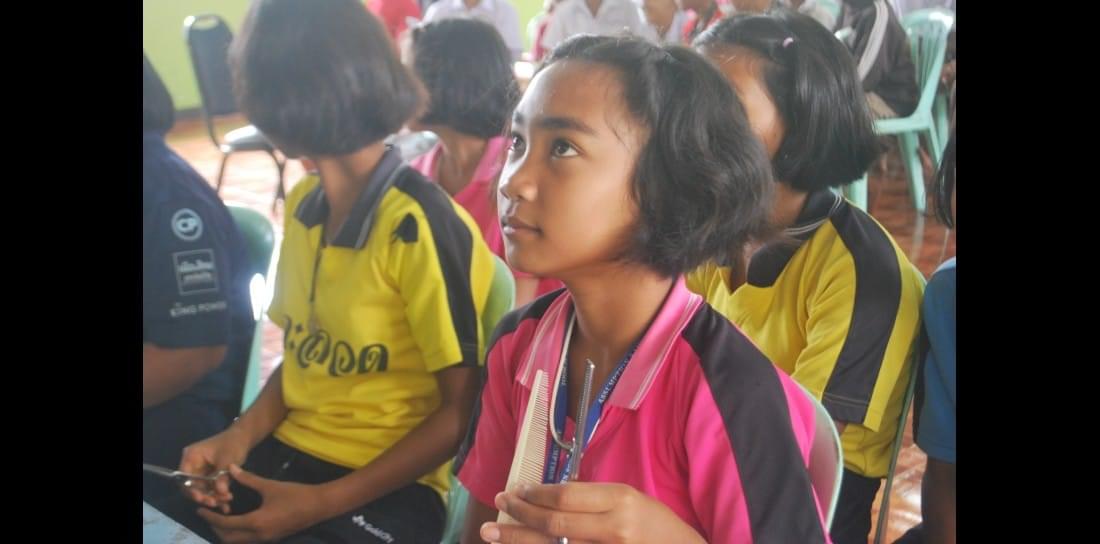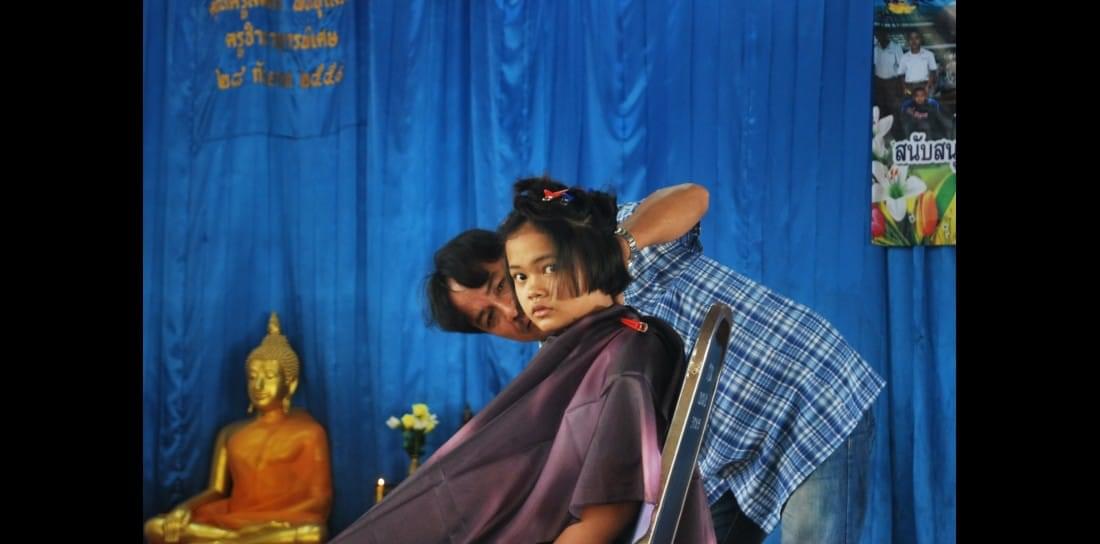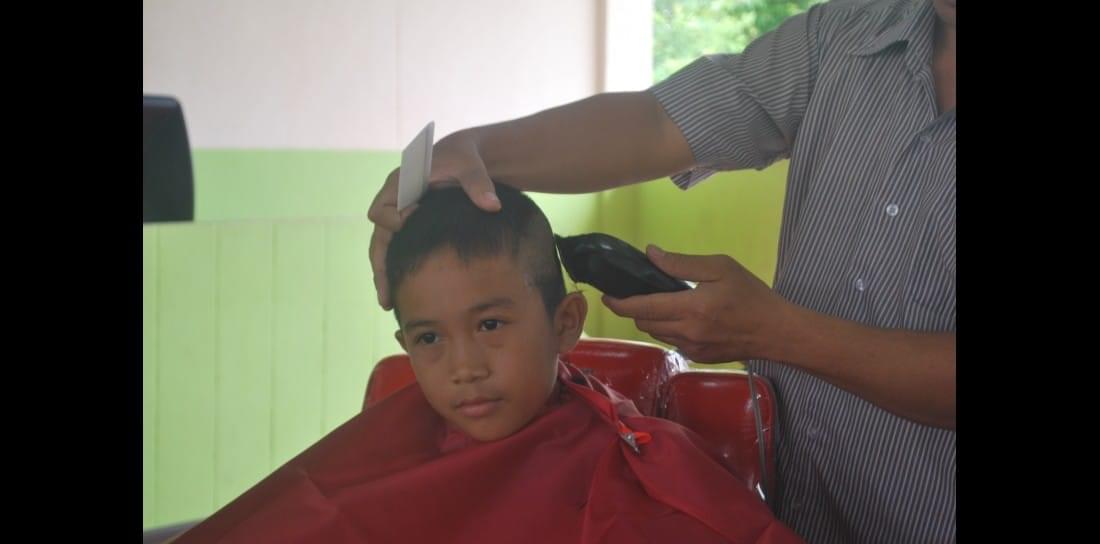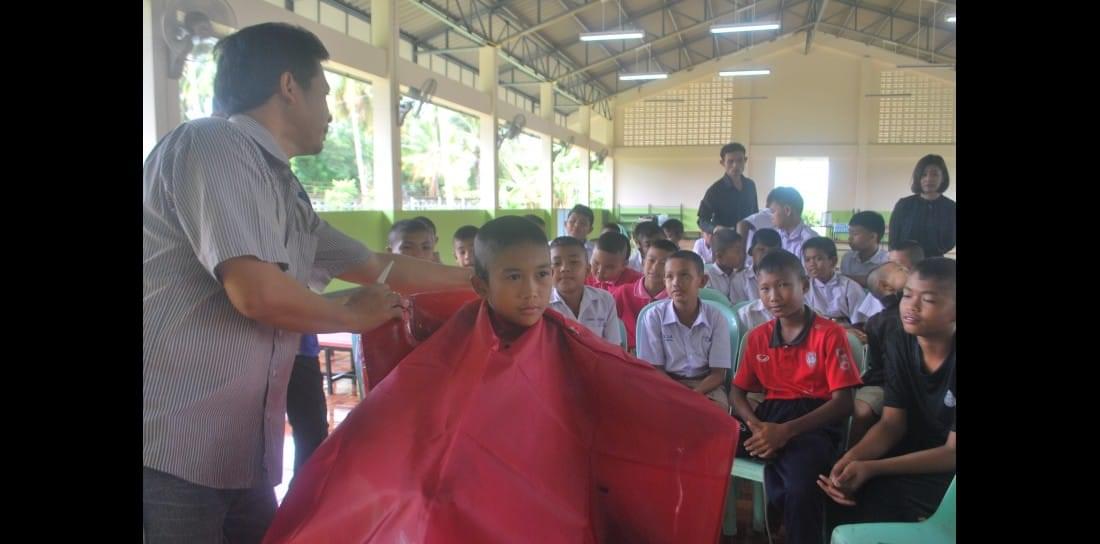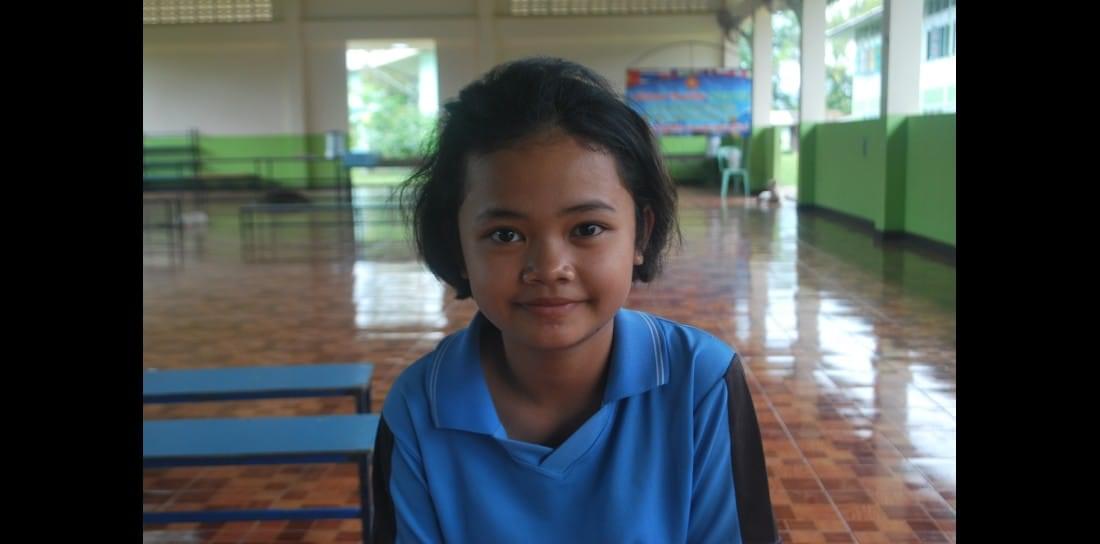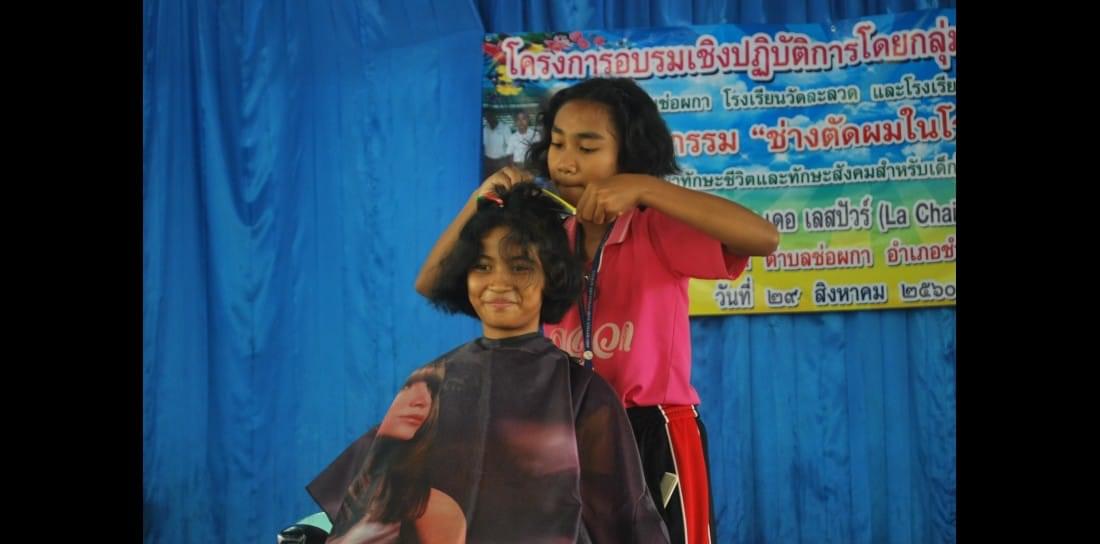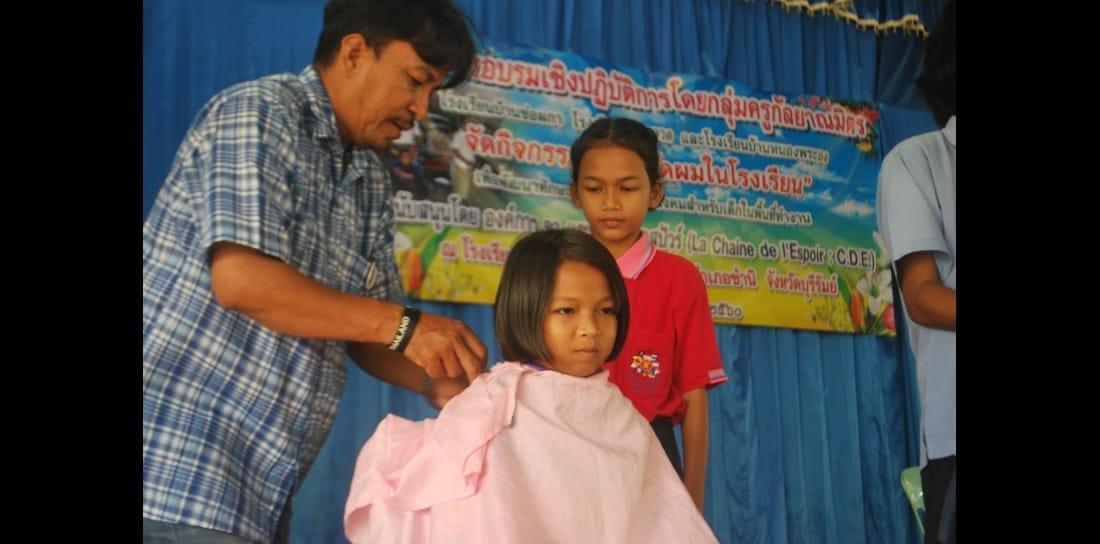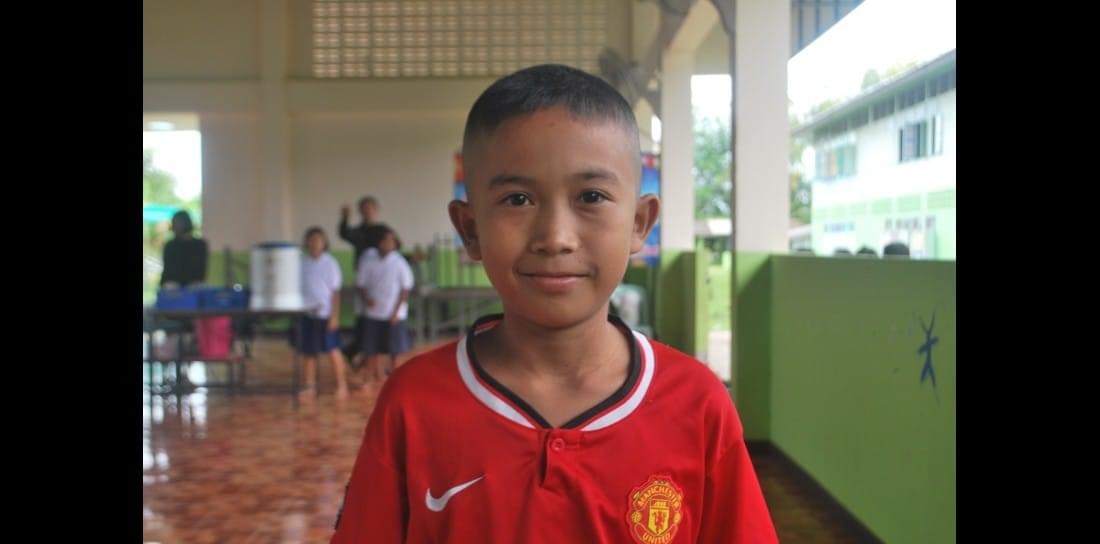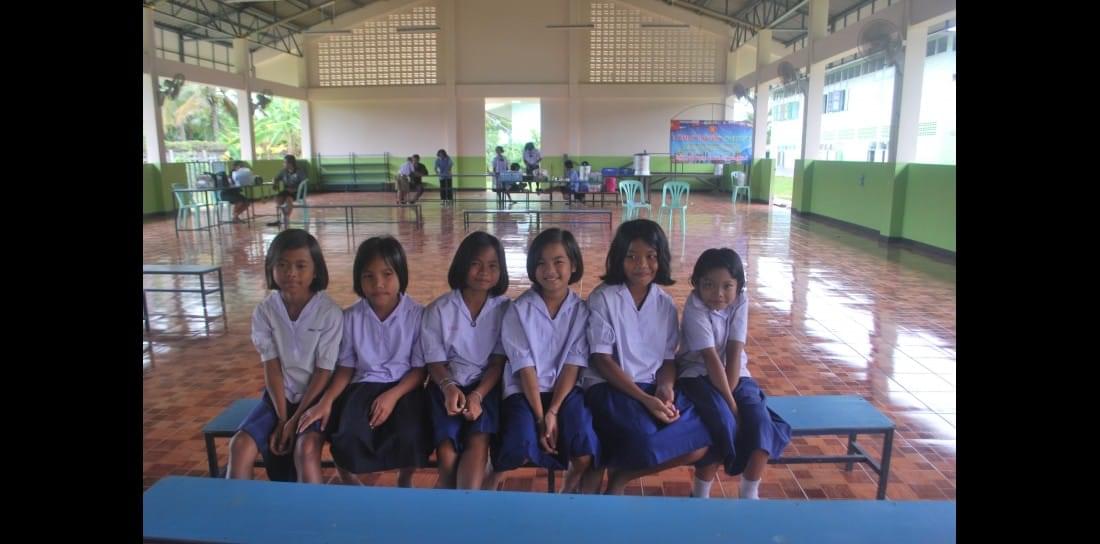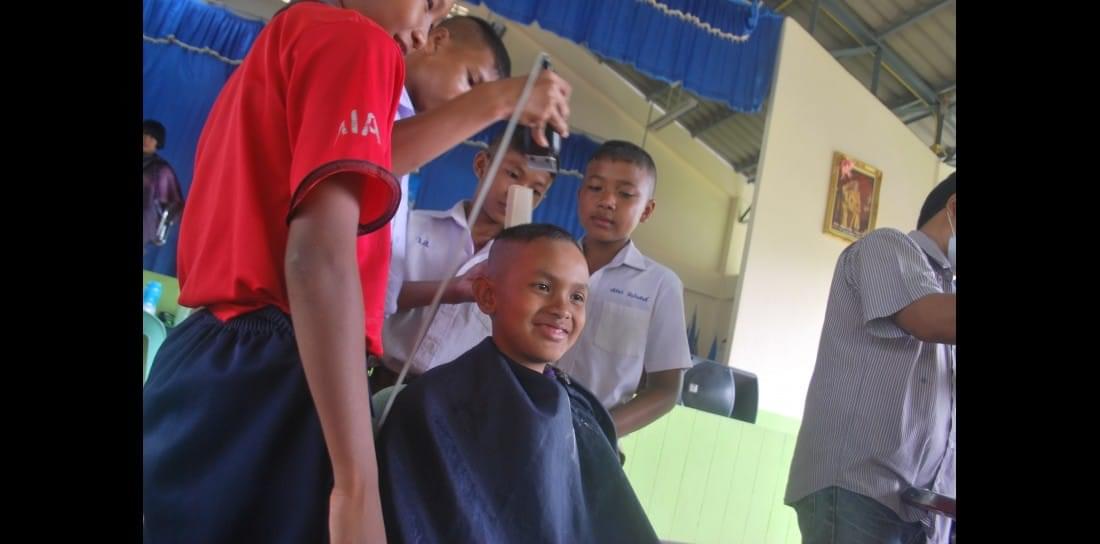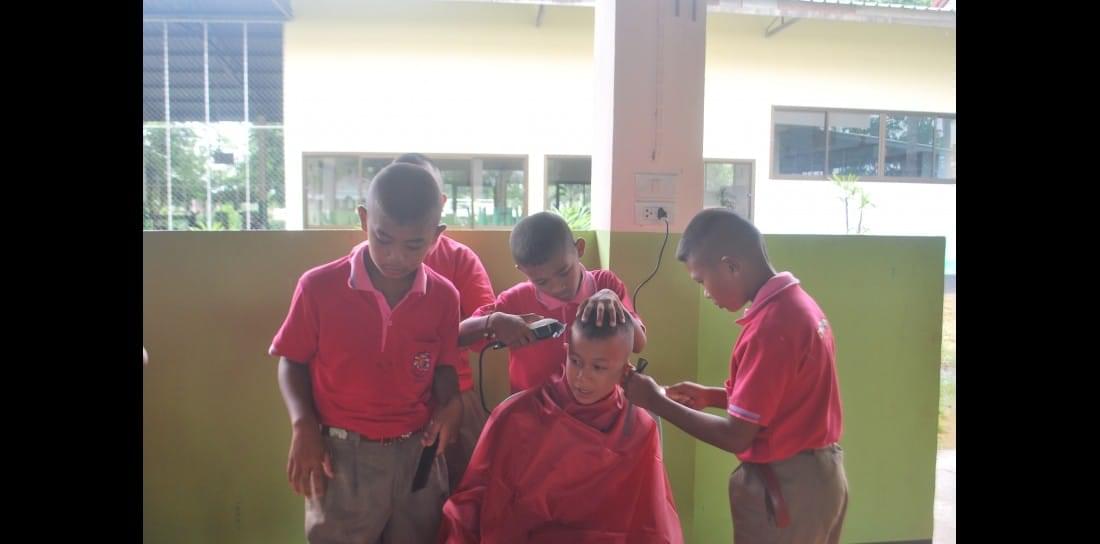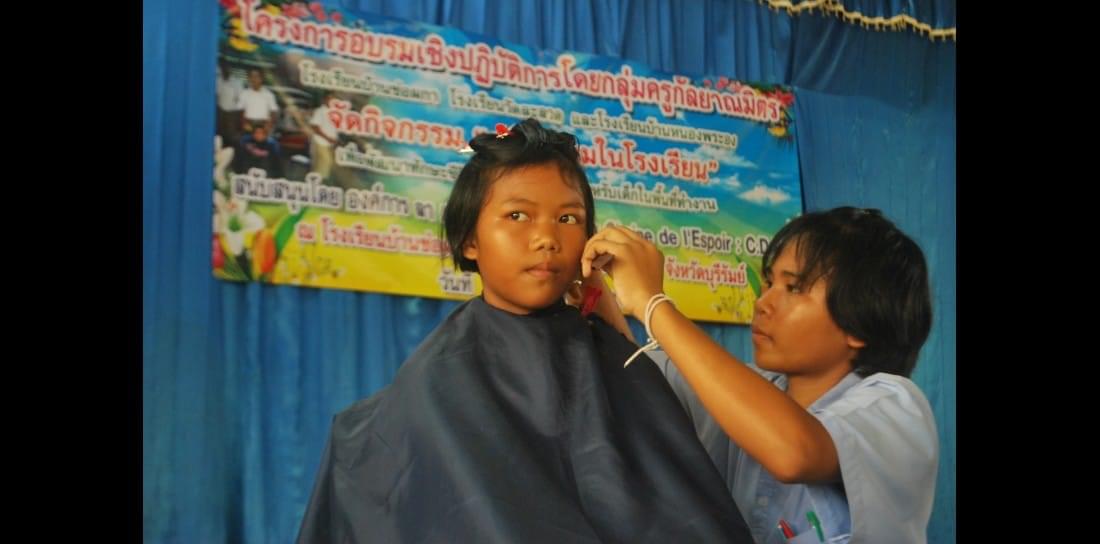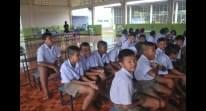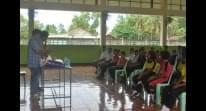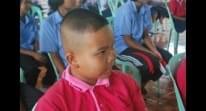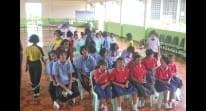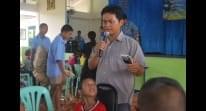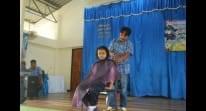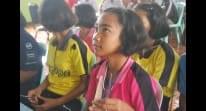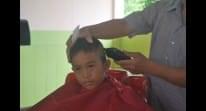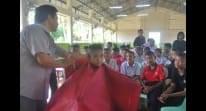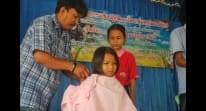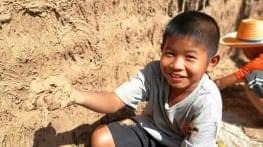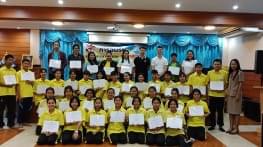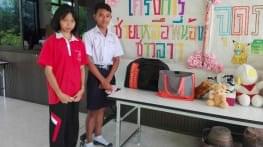Thailand: Education Program
Program Coordinator : Lucie Dechifre - Field Coordinator : La-ong Maneeterm
The Thailand Education programme, which was the first of its kind at La Chaîne de l’Espoir, was initially developed for the children of Bangkok slums. Later, La Chaîne de l’Espoir adopted a prevention approach by progressively focusing its activities on Buriram, the home province of the children in care.
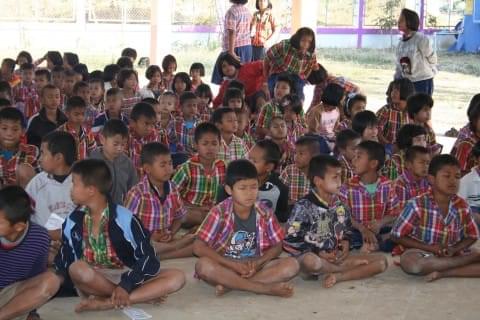
Thailand has experienced deep changes in recent years both economically and in social policies. In a report published in 2016, OECD and UNESCO stated that the Thai education system was “at a crossroads”. Today, Thailand has high enrolment rates thanks to massive investments in the education sector. However, too many poor children, particularly those coming from disadvantaged rural areas, drop out of school early. Many more do not acquire basic learning skills during their schooling. The latest OECD PISA (Programme for International Student Assessment) survey on the quality, equity and efficiency of education systems places Thailand at the bottom of the ranking. Placed number 54 out of 72 countries evaluated, Thailand has even slipped down compared to the previous PISA survey in 2012. A two-tier system established itself, which further aggravated social inequality compromising the socio-economic aspirations of the country.
Reducing inequalities in education across economic barriers can be achieved by improving the quality of teaching and the quality of the school environment. La Chaîne de l’Espoir, with more than 25 years of experience in the country, opted for a dynamic adaptation and modernisation process of its Thailand programme. In order to meet its objectives, this programme builds on a strong network of fifty partner schools and a local experienced team.
OBJECTIVES :
- Strengthen access to quality education in a safe and protective environment for disadvantaged children
- Provide them with a sustainable education
- Improve their health
- Ensure psychological and social support to the most vulnerable children and offer them an environment conducive to their personal and collective fulfilment
ACTIVITIES :
- Individualised support for children in difficulty
The beneficiaries are disadvantaged children, who receive help in the form of material aid (uniforms, school supplies, transport aid...), psycho-social care and family support, based on their needs. It is complemented by school projects aiming at improving the quality of education and school environment for all the children in the supported schools.
- School projects
To take up the challenge of the quality of education in Thailand, the 41 primary and secondary partner schools are mobilising around the school projects. The objective of the projects is to increase knowledge, develop new skills and improve reception and pedagogy conditions in schools. The teaching teams and the pupils participate in their implementation. Sometimes, projects even generate income for the school.
Here are a few examples of successful school projects :
>> Mobile library
The aim of the mobile library is to develop in the 5,450 pupils in 25 schools an appreciation for reading and to provide the tools and skills necessary to better prepare them for their social and professional integration. In 2016, La Chaîne de l’Espoir provided the mobile library with new materials (books, tales, toys, basic sport equipment) to improve the recreational and educational offer.
>> The teaching of English based on phonics
The teaching of English is a real challenge for Thailand, which ranks 56th out of 72 countries evaluated on language level learning. To strengthen the teaching methods available to the teachers, La Chaîne de l’Espoir provides the teachers and pupils of the partner schools with training on teaching English with the phonics method. It is an innovative, fun and efficient method that everyone enjoys!
>> Teaching sciences through games
La Chaîne de l’Espoir provides equipment and helps the teachers from the partner schools to develop experiments and experimentation to make science courses, which are usually too theoretical and abstract for children, more fun. Pupils learn by doing... and playing!
>> Children’s clubs
Those clubs use participatory methods which strengthen the child’s critical analysis and thus promote mutual assistance between children on academic knowledge and the creation of projects on specific issues. At Singha Withayakom school for example, a club was set up to develop income-generating activities. A shop fully managed by the children opened in the school. Profits are used to provide material and financial support to the neediest pupils. Clubs like this one are created in other partner schools. They focus on various topics such as English learning, agriculture, sex education or journalism.
Other school projects include vegetable gardening, cooking or craft classes. They are all means to spark kids’ curiosity and improve their participation at school and in society.
- School health: access to oral health care and prevention activities
Improving the children’s health is one of the priorities of La Chaîne de l’Espoir. Today, oral and dental care and prevention actions on dental hygiene are the first steps in school health measures. School health will be further developed, in particular to promote the sexual and reproductive health of secondary schoolchildren.
- Caring for vulnerable children at the Maison de l’Espoir (House of Hope)
In 2004, La Chaîne de l’Espoir built a “House of Hope” to welcome children exposed to difficult family situations and provide them with safe and stable surroundings. Flagship project of La Chaîne de l’Espoir, the House of Hope can welcome, protect and support up to fifty children in situations of extreme psycho-social, emotional or family vulnerability by taking them in an environment conducive to their personal and collective fulfilment.

